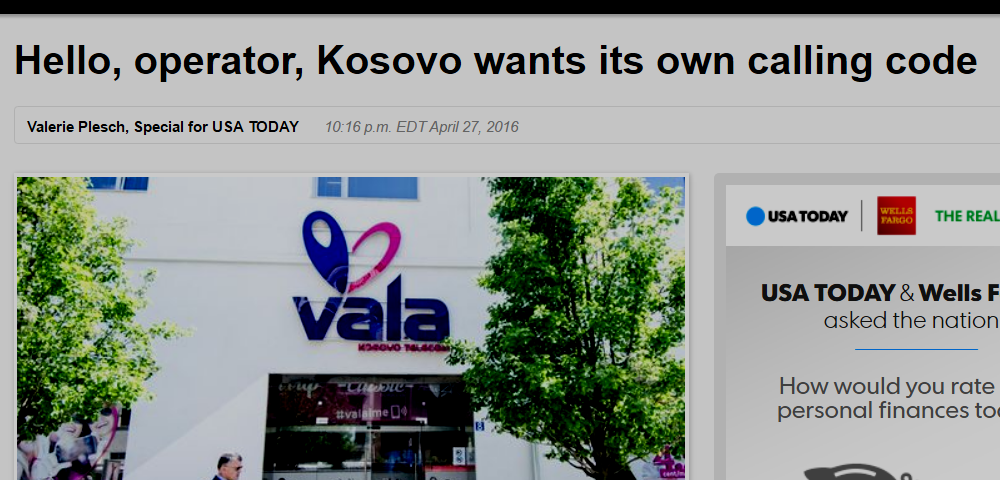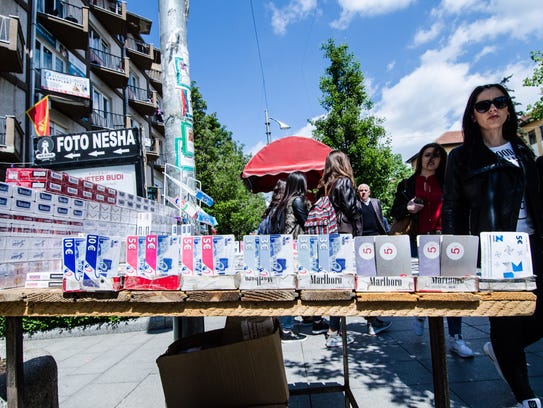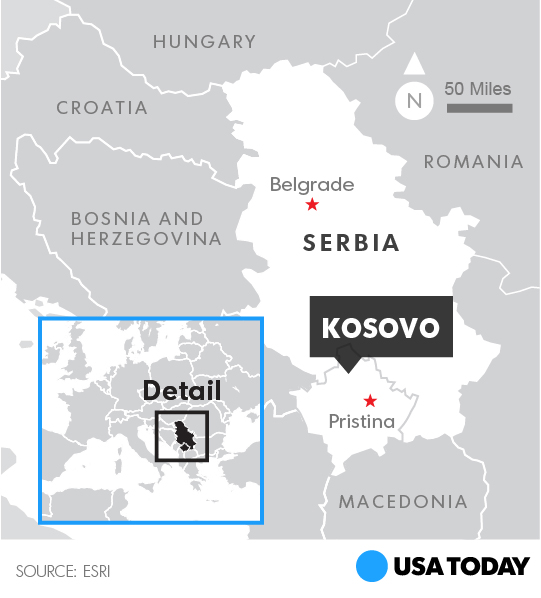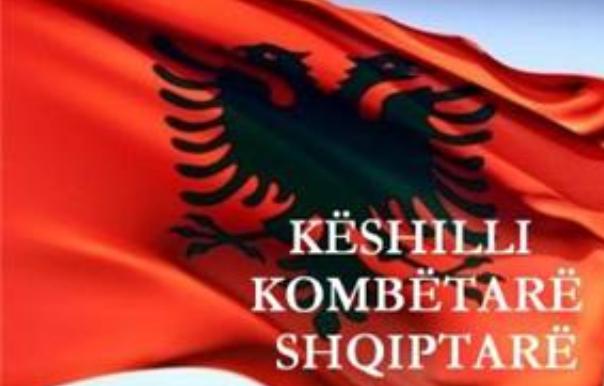 PRISTINA, Kosovo — As Europe’s newest nation, Kosovo has most of the symbols of other sovereign countries, such as a flag and a national anthem, report USA Today , trasnmete the National Information Agency “Presheva Jonë”
PRISTINA, Kosovo — As Europe’s newest nation, Kosovo has most of the symbols of other sovereign countries, such as a flag and a national anthem, report USA Today , trasnmete the National Information Agency “Presheva Jonë”
What it still doesn’t have is its own international calling code, a political — and economic —- insult that infuriates people in this tiny nation of 1.8 million.
Callers who dial someone in Kosovo on a mobile phone must use the country code for either Monaco (377) or Slovenia (386).
Those international codes have forced Kosovo callers to pay more than $248 million in fees from 2000-2016 to telecom companies in those two countries, according to the Kosovo government.
Foreigners calling a land line in Kosovo must dial Serbia’s country code (381) — a frustrating holdover from when Kosovo was a Serbian province and the subject of mass killings and expulsions by the Serbs.
“It’s unfair,” said Fjollë Shaqiri, 20, a psychology student at the University of Pristina. “We’re independent. We’re part of the international world. We’re in Europe.”
The last country to receive its own telephone code was South Sudan in 2011, which became the world’s newest nation three years after Kosovo held that distinction. A total of 193 countries have their own code.
Kosovo declared its independence from Serbia in 2008, after a brutal war that ended in 1999. The young Balkan nation actually was assigned its own code (383) in 1981 — while part of what was then Yugoslavia — by the International Telecommunications Union, a United Nations agency.

But Serbia still does not recognize Kosovo’s independence and so far has blocked Kosovo from using its own country code. The two nations did sign a telecommunications agreement in August, but Serbia has failed twice to submit a letter to the telecommunications union stating it would not pose any obstacles to Kosovo’s receiving a dedicated international code. Prepaid phone cards for mobile phone users are sold along with cigarettes in downtown Pristina, Kosovo. (Photo: Valerie Plesch, Special for USA TODAY)
Serbia doesn’t want to send that letter until it sets up a Serbian telecommunications company in Kosovo, another part of the deal — and sticking point — that requires approval from Kosovo’s government, according to the SerbiaOffice for Kosovo, which deals with its former province.
Djurdja Djukic, a researcher at Civic Initiatives, a democracy and civil rights group in the Serbian capital of Belgrade, calls her country’s resistance to Kosovo’s dialing code a “war with symbols.”
She said blocking the change is Serbia’s way to minimize “the picture of Kosovo as an independent state on this symbolic level.”
A country code is not just a number for people in Kosovo who shed blood for their country’s independence.
“It’s a big deal,” said Edita Tahiri, Kosovo’s chief negotiator with the European Union. “Kosovo will not have anymore two, three codes like we have now.”
But any change won’t happen overnight. Even if both sides eventually agree on Kosovo’s dial code, it would still be about a year before callers can start using the new number, according to the U.N.’s phone organization.
“It’s a symbol that means a lot,” said Shaqiri, the college student. “It’s just a number, but it represents us in the world. … It’s like your own flag or anthem.”















